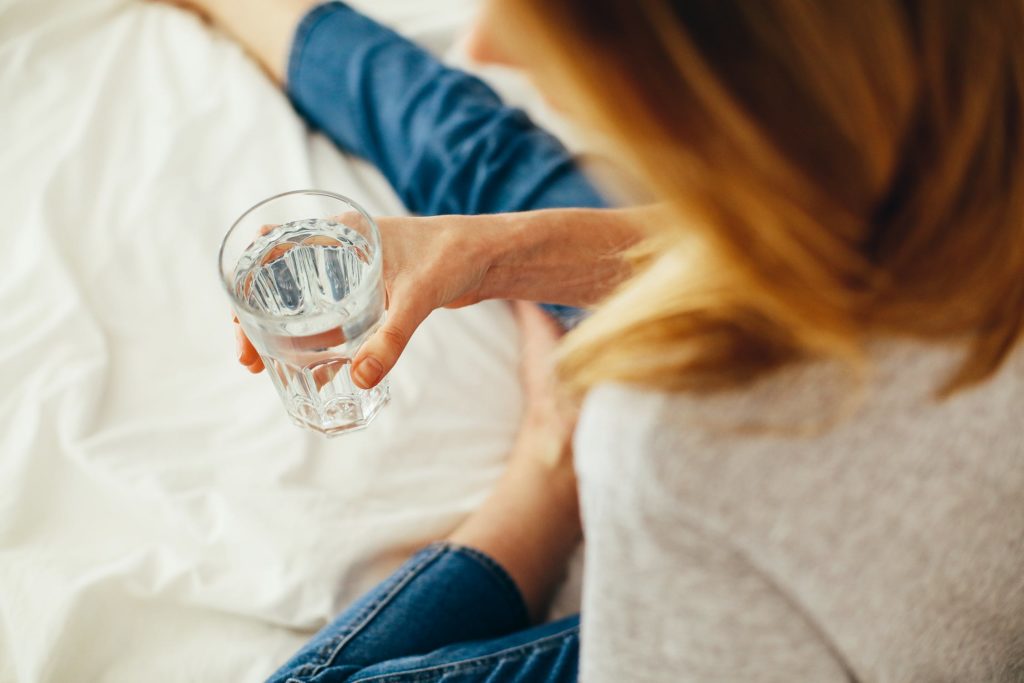Dehydration is one of the most common health concerns among the elderly. By the time an elderly loved one feels thirsty, their levels of essential fluids and electrolytes (essential minerals such as calcium, sodium, and potassium) could already be too low.
Experts recommend older adults get at least 8 cups (64 fluid ounces) a day to combat this problem. How can you ensure that your elderly loved one stays hydrated?
Why Are Elderly People More Susceptible To Dehydration?
Dehydration doesn’t always have to do with seniors drinking lower amounts of water on purpose – as the body ages, water becomes more precious, as the system can’t preserve fluid stores like it used to. It’s an issue that comes when senses, including those of thirst, become diminished.
Medical conditions or the medications they take can also affect their ability to retain fluids. Knowing how medications affect their fluid retention is crucial – diuretics, laxatives, antihistamines, antipsychotics and corticosteroids cause frequent urination, depleting their stores of water and electrolytes. Elderly loved ones with dementia may forget to eat and drink; if their condition is more advanced, they may also have difficulty swallowing.
For some seniors, not staying hydrated can result from trying to spare themselves embarrassment. Those who experience incontinence will often severely limit their fluid intake to avoid accidents.
How To Keep Your Elderly Loved One Properly Hydrated
Most adults need around 8 cups of fluid every day. It’s an amount that must be scaled up with the heat and humidity, as well as if they take certain medications or have health conditions that make dehydration likely. How can you make sure your loved one gets the fluids they need?
Start by taking into account their preferences. Different temperatures can be off-putting, and while you might enjoy a cold glass of water with ice, it could be too much for them. Serve their drink at the temperature they want, as this will make consumption much more likely. Consider adding garnishes like lemon or mint, or try low-sugar water enhancers or pre-flavoured bottles.
The glass in which the drink comes can also be important. A senior with poor vision might spot a cup made of coloured glass better than a clear one; they may also find a beverage appetizing when it comes in attractive glassware or a cup with which they are familiar.
If your loved one has a condition that makes swallowing difficult, make sure to have drinkware they can more easily use. Cups with no-spill lids, built-in straws, two handles, and other ergonomic features can prevent spills and make drinking easier for those with motor skill problems, muscular weakness, tremors, or arthritis.
Water isn’t the only option, though! Most fluids (not including alcohol) and many kinds of fruits and vegetables count towards the 8 cups a day. Smoothies can taste great, deliver a wide range of nutrients, and help meet a proper fluid intake. Soup and chicken, beef or vegetable broth are savoury fluid and electrolyte sources and can be more soothing to consume; it feels less like a drink and more like a meal.
Some other, more solid fruits and vegetables with high water content include cucumber, melons, tomato, bell pepper, grapes, oranges, and apples.
Knowing The Signs Of Dehydration
The first sign of dehydration is often urine colour; if they stay hydrated, their urine should be clear or light yellow. If an elderly love one isn’t using the bathroom often enough, this is also a signal that they need to get more fluids.
Other common signs include headache, dry skin, dry mouth, sleepiness or lethargy, irritability, low blood pressure, constipation, and muscle cramps. If they complain about any of these, water or a beverage can be the first step towards a solution.
Remember, the intake of fluids should correspond with outtake. Sweating or frequent urination means that they need more fluids, not less. If a loved one has an illness that causes vomiting, fever, or diarrhea, you or the home caregiver should carefully monitor their fluid intake.

